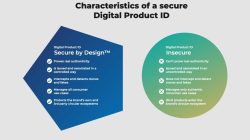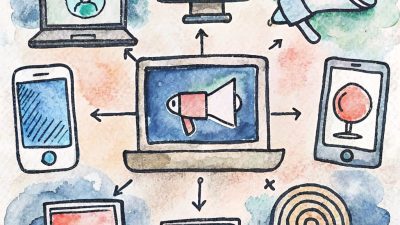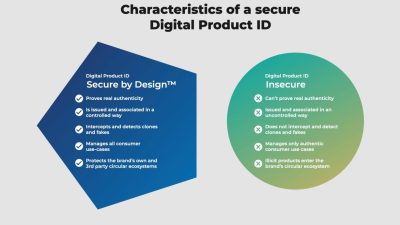How Payment Processors Adapt to Industry Needs sets the stage for this enthralling narrative, offering readers a glimpse into a story that is as dynamic as a cat chasing a laser pointer. Imagine a world where payment processors don’t just sit back and chill like a sloth on a Sunday—they evolve! As industries grow and consumer expectations become as high as a giraffe on stilts, payment processors are here to keep pace, adapting their strategies like a chameleon at a color party.
Whether it’s catering to the rise of e-commerce or embracing the latest fintech trends, these processors are the unsung heroes of modern transactions.
In this exploration, we’ll dive into the nuts and bolts of how these financial wizards customize their services to fit the shifting landscape of commerce, ensuring everyone from local bakeries to multinational corporations can collect their dough, literally and figuratively.

Welcome, brave souls, to the wondrous world of procrastination! Here, we gather to celebrate our most cherished and often misunderstood ability: the art of delay. Much like fine wine or a good cheese, procrastination matures with time, gaining depth and complexity. So grab your favorite snack (you know, the one you bought three weeks ago and swore you’d eat “later”), and let’s dive right in!
Procrastination: A Brief History
Procrastination is a tale as old as time, or at least as old as the first caveman who decided to put off building a fire in favor of counting rocks. Yes, from the dawn of humanity, we’ve been perfecting the skill of “just five more minutes.” First documented in ancient texts, procrastination was often attributed to various gods who clearly had a sense of humor.
Why build a pyramid today when you can spend the afternoon perfecting your chariot racing skills?
Fast forward to our modern lives, and the art of procrastination has evolved into a veritable phenomenon. We’ve traded in cave paintings for Instagram posts, but the underlying principle remains the same: why do today what you can put off until tomorrow, preferably while binge-watching your favorite series?
Why Do We Procrastinate?
Ah, the million-dollar question! Why do we, in our infinite wisdom, choose to postpone important tasks? The answers are as varied as the excuses we make. Here are a few classic reasons:
- Fear of Failure: Sometimes, the thought of failing at a task is so daunting that we’d rather scroll through our social media feeds for the 47th time. “Oh look, my high school friend is on vacation in Bali! Definitely more interesting than that report due tomorrow!”
- Perfectionism: Striving for perfection can lead to paralysis. “If I can’t write the perfect essay on my first try, what’s the point?” Spoiler alert: the point is to write something. Anything. Even if it’s just a grocery list!
- Lack of Motivation: If we’re not excited about a task, it can feel like trying to swim through molasses. “I could clean my room, or I could watch a documentary about how to clean my room. The second option sounds way more productive!”
The Procrastination Cycle: A Comedy of Errors: How Payment Processors Adapt To Industry Needs
Picture this: a typical procrastinator’s day. It begins with the classic “I’ll start my assignment after I finish this episode.” Fast forward three hours, and you’re knee-deep in conspiracy theories about your favorite TV show that involve aliens, time travel, and possibly a talking dog.
Next comes the “the deadline is still far away” phase, which is often accompanied by a healthy dose of denial. “I have a whole week! I could build a rocket ship in that time!” Spoiler alert: Rocket ships are not built in a week. Or at least they shouldn’t be.
As the deadline looms closer, panic sets in. You frantically type your essay while your coffee transforms into a caffeinated monster, giving you the energy of a thousand suns. By the time you hit ‘send’, you’ve entered a state of delirium that only a true procrastinator can understand.
Procrastination: The Silver Lining
Now, before you start throwing your keyboard at me, let’s take a moment to appreciate the silver linings of procrastination. Believe it or not, there are some benefits to this seemingly lazy endeavor!
- Enhanced Creativity: When you leave things until the last minute, your brain is forced to think outside the box. “How can I write this essay in two hours while also making it sound like Shakespeare?!” The result? A Shakespearean tragedy of epic proportions.
- Stress Management: While procrastination might seem like a one-way ticket to stress city, some studies suggest that a little last-minute pressure can actually boost performance. It’s like running a marathon while being chased by a bear—suddenly, you’re highly motivated!
- Improved Time Management Skills: Believe it or not, those who procrastinate often develop incredible time management skills. You learn to prioritize what really matters, like having a snack break instead of writing that 5,000-word essay.
How to Embrace Your Inner Procrastinator
Now that we’ve glorified procrastination, let’s discuss how to embrace it without completely derailing your life. Here are some tips:
- Set Realistic Goals: Instead of aiming to write that novel in a week, aim for one page per day. Or, if you’re feeling particularly ambitious, just write the title. Baby steps, my friends.
- Embrace the Power of “Later”: If you can’t tackle a task now, give yourself permission to put it off. Just make sure “later” doesn’t turn into “never.” Set a timer—like a countdown to a rocket launch!
- Find Your Procrastination Style: Are you a “distracted by shiny objects” procrastinator, or are you more of a “I’ll clean my closet instead” type? Identify your style and learn to work with it. If cleaning your closet helps you avoid writing that report, then by all means, let’s get organizing!
Conclusion: The Procrastinator’s Legacy
In conclusion, procrastination isn’t just a guilty pleasure; it’s an art form. While we may not win awards for our time management skills, we’ve certainly mastered the fine dance of delay. So the next time you find yourself staring longingly at your to-do list, remember: it’s okay to procrastinate…just do it fabulously!
So go forth, my fellow procrastinators! Embrace your talent, wield it like a sword of glory, and remember: tomorrow is a new day, and there’s always time to put things off.
Question Bank
What factors drive changes in payment processing?
Changes are driven by technological advancements, consumer preferences, and regulatory shifts that keep payment processors on their toes.
How do payment processors ensure security?
They implement advanced encryption, fraud detection systems, and compliance with regulations to keep transactions as safe as a vault full of gold!
What role does customer feedback play?
Customer feedback is like gold dust—it helps payment processors refine their services and adapt to user needs, making them more effective and user-friendly.
Can small businesses benefit from advanced payment processors?
Absolutely! Small businesses can leverage advanced payment processors to streamline transactions, expand payment options, and enhance customer experiences.
What future trends should we expect in payment processing?
Expect more AI-driven solutions, cryptocurrency integrations, and seamless multi-channel payment experiences that will make transactions as easy as pie!













